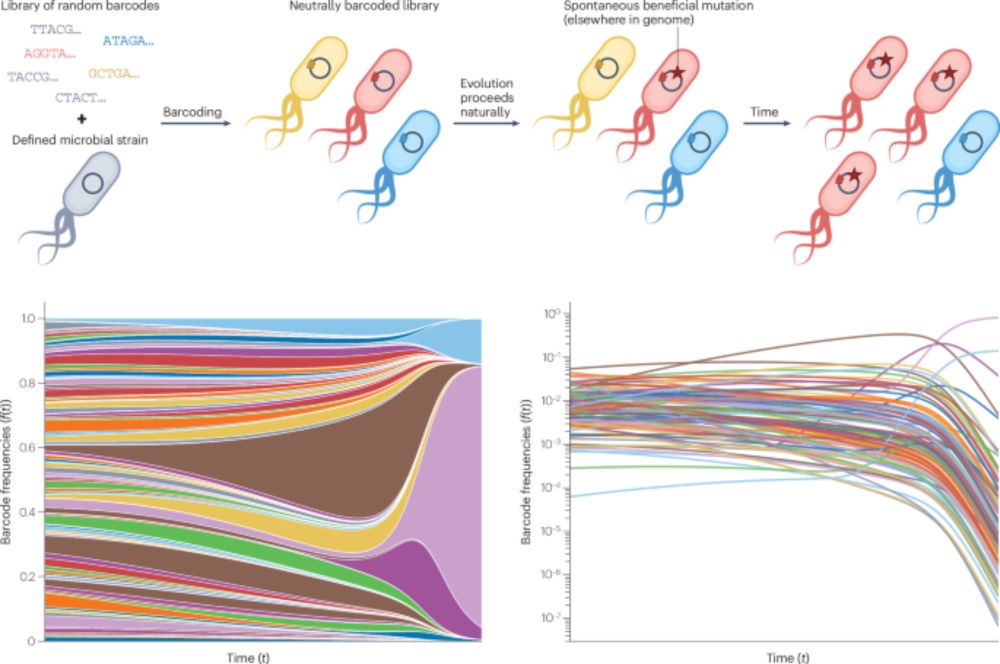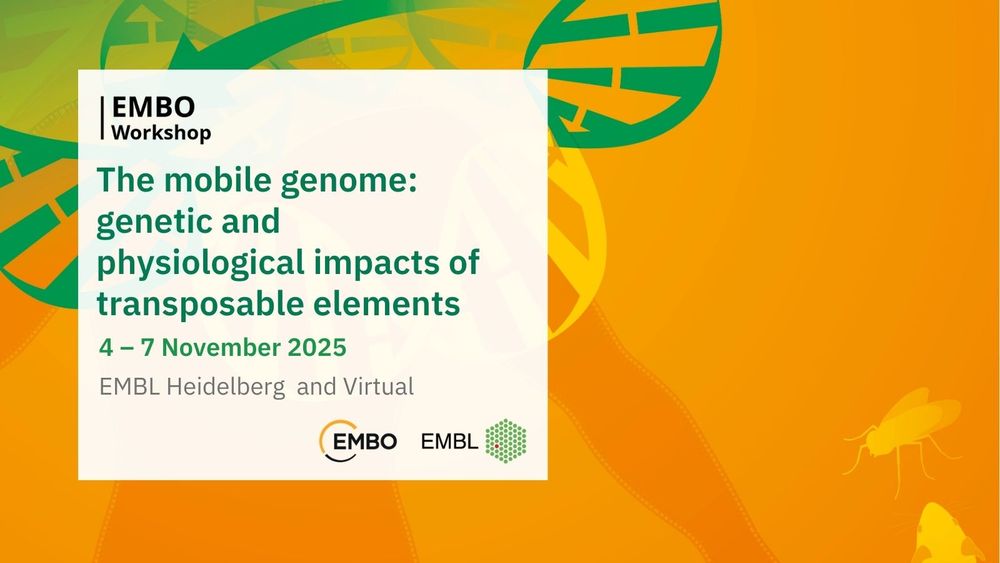Gavin Sherlock
@gsherloc.bsky.social
3.7K followers
310 following
160 posts
Geneticist whose lab does experimental evolution, using yeast as a model. Because being a footballer was never going to work out, due to lack of talent.
PI of SGD and CGD
ORCID: 0000-0002-1692-4983
Posts
Media
Videos
Starter Packs
Reposted by Gavin Sherlock
Alex Merz 🇺🇸🇨🇦🇺🇦
@merz.bsky.social
· Aug 28
Gavin Sherlock
@gsherloc.bsky.social
· Aug 24
Gavin Sherlock
@gsherloc.bsky.social
· Aug 23
Reposted by Gavin Sherlock
Reposted by Gavin Sherlock
Joao Ascensao
@joaoascensao.bsky.social
· Aug 21

Frequency-dependent fitness effects are ubiquitous
In simple microbial populations, the fitness effects of most selected mutations are generally taken to be constant, independent of genotype frequency. This assumption underpins predictions about evolutionary dynamics, epistatic interactions, and the maintenance of genetic diversity in populations. Here, we systematically test this assumption using beneficial mutations from early generations of the Escherichia coli Long-Term Evolution Experiment (LTEE). Using flow cytometry-based competition assays, we find that frequency-dependent fitness effects are the norm rather than the exception, occurring in approximately 80\% of strain pairs tested. Most competitions exhibit negative frequency-dependence, where fitness advantages decline as mutant frequency increases. Furthermore, we demonstrate that the strength of frequency-dependence is predictable from invasion fitness measurements, with invasion fitness explaining approximately half of the biological variation in frequency-dependent slopes. Additionally, we observe violations of fitness transitivity in several strain combinations, indicating that competitive relationships cannot always be predicted from fitness relative to a single reference strain alone. Through high-resolution measurements of within-growth cycle dynamics, we show that simple resource competition explains a substantial portion of the frequency-dependence: when faster-growing genotypes dominate populations, they deplete shared resources more rapidly, reducing the time available for fitness differences to accumulate. Our results demonstrate that even in a simple model system designed to minimize ecological complexity, subtle ecological interactions between closely related genotypes create frequency-dependent selection that can fundamentally alter evolutionary dynamics. ### Competing Interest Statement The authors have declared no competing interest.
doi.org
Reposted by Gavin Sherlock
Reposted by Gavin Sherlock
Brian Wasik
@brianrwasik.bsky.social
· Jul 30
Reposted by Gavin Sherlock
Reposted by Gavin Sherlock
Reposted by Gavin Sherlock
Reposted by Gavin Sherlock
Ákos T Kovács
@evolvedbiofilm.bsky.social
· Jul 22

Experimental evolution in an era of molecular manipulation - Nature Reviews Genetics
In this Review, Ascensao and Desai discuss how methodological advances in genotype and phenotype manipulation are transforming experimental evolution approaches and providing new insights into the und...
www.nature.com
Gavin Sherlock
@gsherloc.bsky.social
· Jul 20
Reposted by Gavin Sherlock
Reposted by Gavin Sherlock
Eva Kowalinski
@kowaeva.bsky.social
· Jul 17

Postdoc in Structural Biology of RNA processing complexes
Postdoctoral positions in structural biology of macromolecular complexes are available in the laboratory of Dr. Eva Kowalinski at the EMBL Grenoble, France. We are looking for highly motivated and amb...
tinyurl.com
Reposted by Gavin Sherlock
Reposted by Gavin Sherlock
Gavin Sherlock
@gsherloc.bsky.social
· Jul 12
Reposted by Gavin Sherlock
Gavin Sherlock
@gsherloc.bsky.social
· Jul 11









